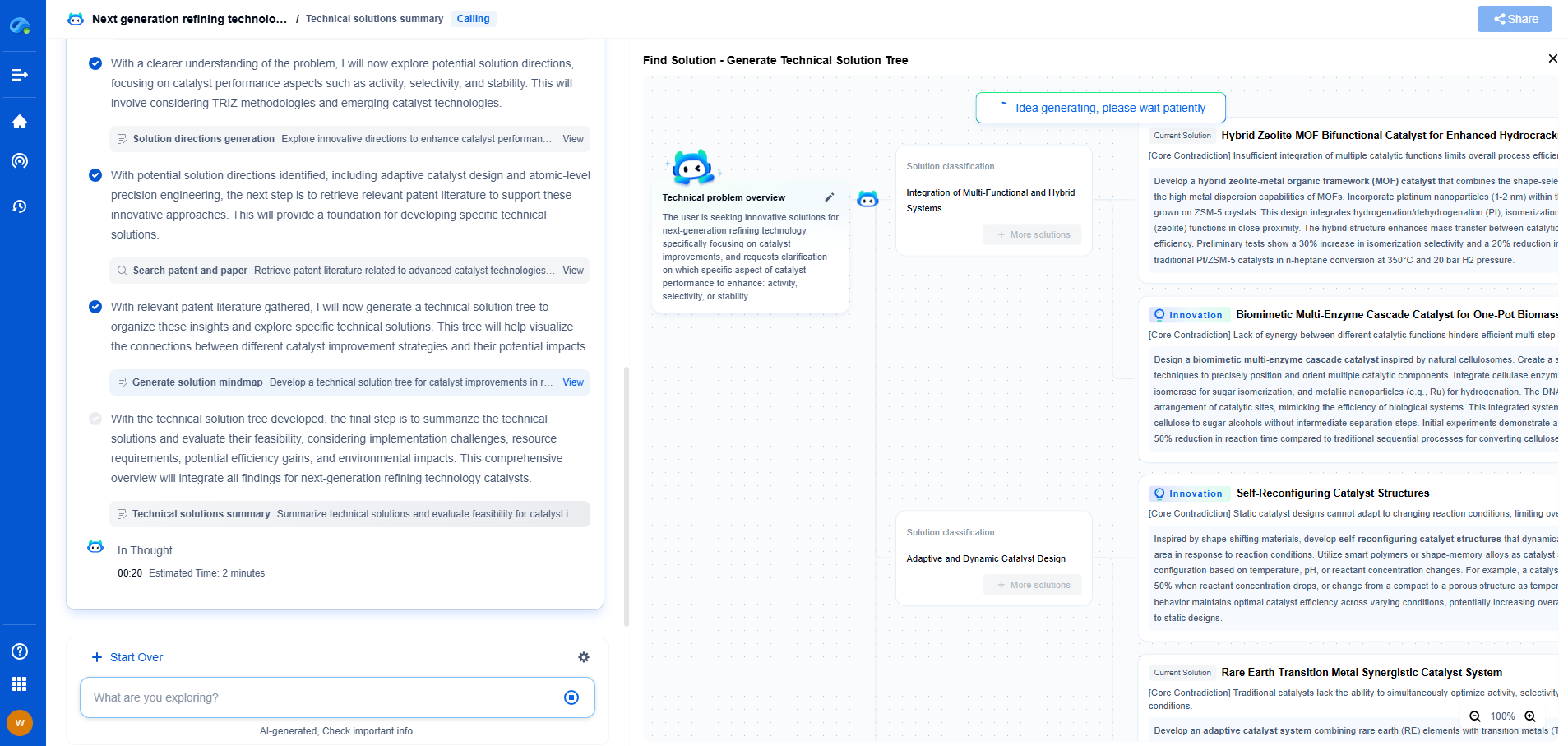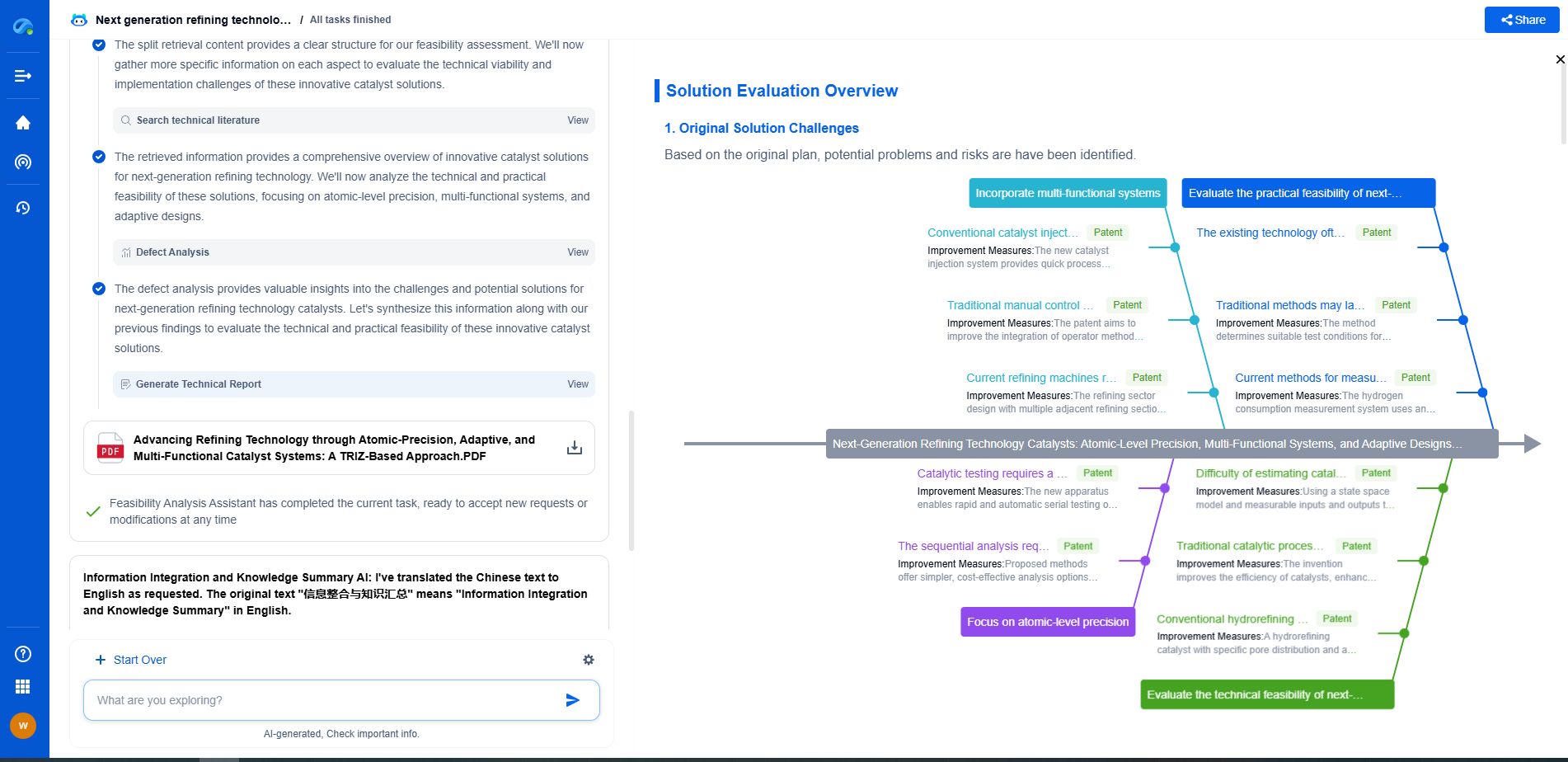Challenges in Implementing Federated Learning at Scale
JUN 26, 2025 |
Data Privacy and Security
One of the foremost challenges in federated learning is ensuring data privacy and security. While federated learning itself is designed to protect data by keeping it on the local device, there still exists the potential risk of leakage through model updates. Attackers might infer sensitive information by analyzing these updates. To counteract this, differential privacy and secure multi-party computation techniques are often utilized, though they introduce additional complexity and computational overhead.
Communication Overhead
Federated learning involves frequent communication between devices and a central server to update the global model. This can lead to significant communication overhead, especially when dealing with a large number of participants. Each device sends updates, which can be voluminous, necessitating efficient communication protocols and compression techniques. Managing network bandwidth and latency becomes crucial, particularly in mobile networks or geographically dispersed deployments.
Heterogeneity of Devices
A major challenge in federated learning is the heterogeneity of devices. Participants often use different hardware with varying computational capabilities, battery life, and network connectivity. This diversity can lead to stragglers—devices that lag in completing their updates—slowing down the entire training process. Strategies such as selecting only a subset of devices per training round or dynamically adjusting the complexity of local models can help mitigate these issues.
Model and Algorithm Design
Designing models and algorithms that are suited for federated learning is another challenge. Traditional machine learning models and algorithms are not inherently designed to handle the decentralized and non-IID (independently and identically distributed) nature of data in federated settings. Researchers need to develop more robust algorithms that can effectively learn in such environments, ensuring convergence and stability even when data across devices varies significantly.
Scalability
Scaling federated learning involves both increasing the number of devices and dealing with vast amounts of data. Ensuring the system can handle such scale requires optimized infrastructure and robust orchestration frameworks. Moreover, as the number of participating devices increases, so does the complexity of coordinating them, requiring sophisticated scheduling and load balancing algorithms to maintain efficiency.
Model Accuracy and Convergence
Achieving high model accuracy and ensuring convergence in federated learning can be difficult due to the decentralized nature of data. Non-IID data can lead to biases in local models that don't generalize well when aggregated into a global model. Techniques such as personalized federated learning, where models are tailored to individual devices, or using meta-learning to adapt to different data distributions, are being explored to address these challenges.
Regulatory Compliance
Federated learning must comply with various data protection regulations such as GDPR in Europe or HIPAA in the United States. These regulations impose strict requirements on how data is handled, processed, and used, which can complicate federated learning implementations. Ensuring compliance while maintaining the efficiency and efficacy of federated systems requires a delicate balance and often necessitates legal expertise and consultation.
Conclusion
Federated learning holds great promise for privacy-preserving machine learning, but its implementation at scale is fraught with challenges. From ensuring data privacy and managing communication overhead to dealing with device heterogeneity and ensuring model accuracy, organizations must carefully plan and address these issues. With ongoing research and development, federated learning is expected to overcome many of its current limitations, paving the way for more secure and scalable AI solutions in the future.
Unleash the Full Potential of AI Innovation with Patsnap Eureka
The frontier of machine learning evolves faster than ever—from foundation models and neuromorphic computing to edge AI and self-supervised learning. Whether you're exploring novel architectures, optimizing inference at scale, or tracking patent landscapes in generative AI, staying ahead demands more than human bandwidth.
Patsnap Eureka, our intelligent AI assistant built for R&D professionals in high-tech sectors, empowers you with real-time expert-level analysis, technology roadmap exploration, and strategic mapping of core patents—all within a seamless, user-friendly interface.
👉 Try Patsnap Eureka today to accelerate your journey from ML ideas to IP assets—request a personalized demo or activate your trial now.
- R&D
- Intellectual Property
- Life Sciences
- Materials
- Tech Scout
- Unparalleled Data Quality
- Higher Quality Content
- 60% Fewer Hallucinations
Browse by: Latest US Patents, China's latest patents, Technical Efficacy Thesaurus, Application Domain, Technology Topic, Popular Technical Reports.
© 2025 PatSnap. All rights reserved.Legal|Privacy policy|Modern Slavery Act Transparency Statement|Sitemap|About US| Contact US: help@patsnap.com

